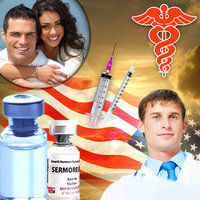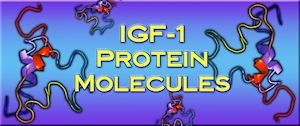Introduction
Cardiovascular disease remains a leading cause of morbidity and mortality among American males. As the prevalence of heart-related conditions continues to rise, so does the use of medications designed to manage these diseases. While these medications are essential for maintaining heart health, emerging research suggests that they may have unintended effects on other bodily systems, including testicular health. This article explores the relationship between cardiovascular medications and testicular health in American males, highlighting the need for comprehensive healthcare strategies that address both heart and reproductive wellness.
The Cardiovascular-Testicular Health Connection
The heart and testes are intricately linked through the body's hormonal and circulatory systems. Cardiovascular disease can impact testicular function by altering blood flow and hormone levels, which are crucial for maintaining testicular health. Medications used to treat heart conditions, such as beta-blockers, ACE inhibitors, and statins, can further complicate this relationship. These drugs, while effective in managing cardiovascular health, may inadvertently affect testicular function and fertility.
Impact of Beta-Blockers on Testicular Health
Beta-blockers, commonly prescribed to manage hypertension and heart failure, work by blocking the effects of adrenaline on the heart. However, they can also affect the body's hormonal balance. Studies have shown that beta-blockers may lead to reduced testosterone levels, which can impair spermatogenesis and overall testicular function. American males on long-term beta-blocker therapy should be aware of these potential side effects and discuss them with their healthcare providers.
ACE Inhibitors and Testicular Function
ACE inhibitors are another class of medications frequently used to treat hypertension and heart failure. These drugs work by inhibiting the angiotensin-converting enzyme, which helps relax blood vessels. While generally well-tolerated, ACE inhibitors have been linked to changes in testicular function. Research indicates that these medications may affect the renin-angiotensin system within the testes, potentially leading to reduced sperm quality and quantity. American males taking ACE inhibitors should monitor their reproductive health and consult their doctors if they notice any changes.
Statins and Reproductive Health
Statins, widely prescribed to lower cholesterol levels and reduce the risk of heart disease, have also been implicated in affecting testicular health. These medications can influence the body's steroid hormone synthesis, including testosterone production. Some studies suggest that statin use may be associated with reduced testosterone levels and impaired fertility. American males on statin therapy should be vigilant about their reproductive health and consider regular monitoring of their testosterone levels.
Managing Cardiovascular and Testicular Health
Given the potential impact of cardiovascular medications on testicular health, American males must adopt a holistic approach to their healthcare. Regular check-ups with both a cardiologist and a urologist can help monitor the effects of heart medications on reproductive function. Additionally, lifestyle modifications such as maintaining a healthy diet, engaging in regular exercise, and managing stress can support both cardiovascular and testicular health.
Conclusion
The relationship between cardiovascular medications and testicular health is a critical concern for American males. While these medications are essential for managing heart disease, their potential impact on reproductive health cannot be overlooked. By staying informed and proactive about their healthcare, American males can better manage the delicate balance between cardiovascular and testicular wellness. Future research and clinical guidelines should continue to explore this connection, ensuring that men receive comprehensive care that addresses all aspects of their health.
Contact Us For A Fast And Professional Response

- 0001) Testicular Cancer Survivorship: Navigating Health and Well-being Post-Treatment [Last Updated On: February 26th, 2025] [Originally Added On: February 26th, 2025]
- 0002) Testicular and Prostate Health: Interconnected Wellness for American Men [Last Updated On: March 16th, 2025] [Originally Added On: March 16th, 2025]
- 0003) Testicular Health and Fertility: Advances in Diagnosis and Treatment for Couples [Last Updated On: March 17th, 2025] [Originally Added On: March 17th, 2025]
- 0004) Testicular Health and Hormone Replacement Therapy: A Comprehensive Guide for American Men [Last Updated On: March 18th, 2025] [Originally Added On: March 18th, 2025]
- 0005) Exercise and Testicular Health: Enhancing Reproductive Wellness in American Males [Last Updated On: March 18th, 2025] [Originally Added On: March 18th, 2025]
- 0006) Understanding Testicular Pain: Causes, Diagnosis, and Treatment Options for American Males [Last Updated On: March 18th, 2025] [Originally Added On: March 18th, 2025]
- 0007) Economic Impact of Testicular Cancer Treatment on American Males: Costs and Disparities [Last Updated On: March 19th, 2025] [Originally Added On: March 19th, 2025]
- 0008) Testicular Health: Essential Knowledge for Young American Males [Last Updated On: March 20th, 2025] [Originally Added On: March 20th, 2025]
- 0009) Testicular Health and Mental Well-being: A Holistic Guide for American Males [Last Updated On: March 20th, 2025] [Originally Added On: March 20th, 2025]
- 0010) Smoking's Impact on Testicular Health: Risks and Remedies for American Males [Last Updated On: March 21st, 2025] [Originally Added On: March 21st, 2025]
- 0011) Testicular Health: Importance of Regular Check-ups and Self-Exams for American Men [Last Updated On: March 21st, 2025] [Originally Added On: March 21st, 2025]
- 0012) Testicular Cancer Screening Guidelines for American Men: Detection and Prevention [Last Updated On: March 21st, 2025] [Originally Added On: March 21st, 2025]
- 0013) Stress and Testicular Health: Impacts on American Men's Reproductive Wellness [Last Updated On: March 21st, 2025] [Originally Added On: March 21st, 2025]
- 0014) Diabetes Impact on Testicular Health: Insights for American Men [Last Updated On: March 21st, 2025] [Originally Added On: March 21st, 2025]
- 0015) Overcoming Psychological Barriers to Testicular Health Care in American Males [Last Updated On: March 22nd, 2025] [Originally Added On: March 22nd, 2025]
- 0016) Testicular Health and Autoimmune Disorders: A Comprehensive Guide for American Men [Last Updated On: March 23rd, 2025] [Originally Added On: March 23rd, 2025]
- 0017) Alcohol's Impact on Testicular Health and Fertility in American Men [Last Updated On: March 23rd, 2025] [Originally Added On: March 23rd, 2025]
- 0018) Community Support Enhances Testicular Health Awareness in American Males [Last Updated On: March 24th, 2025] [Originally Added On: March 24th, 2025]
- 0019) Steroid Use and Its Impact on American Men's Testicular Health: Risks and Recovery [Last Updated On: March 24th, 2025] [Originally Added On: March 24th, 2025]
- 0020) Testicular Health and Cardiovascular Disease: Insights for American Men's Proactive Care [Last Updated On: March 24th, 2025] [Originally Added On: March 24th, 2025]
- 0021) Public Health Campaigns Boost Testicular Health Awareness in American Men [Last Updated On: March 24th, 2025] [Originally Added On: March 24th, 2025]
- 0022) Occupational Hazards Impacting Testicular Health in American Male Workers: Risks and Prevention [Last Updated On: March 24th, 2025] [Originally Added On: March 24th, 2025]
- 0023) Nutrition's Impact on Testicular Health: A Guide for American Men [Last Updated On: March 24th, 2025] [Originally Added On: March 24th, 2025]
- 0024) Testicular Health and Sleep: Vital Links and Improvement Tips for American Males [Last Updated On: March 25th, 2025] [Originally Added On: March 25th, 2025]
- 0025) Illicit Drugs' Impact on Testicular Health: Risks and Protection Strategies for American Men [Last Updated On: March 25th, 2025] [Originally Added On: March 25th, 2025]
- 0026) Chemotherapy's Impact on Testicular Health: Insights for Male Cancer Survivors [Last Updated On: March 25th, 2025] [Originally Added On: March 25th, 2025]
- 0027) Ultrasound: Key to Diagnosing Testicular Conditions in American Males [Last Updated On: March 25th, 2025] [Originally Added On: March 25th, 2025]
- 0028) Telemedicine: Revolutionizing Testicular Health Care for American Men [Last Updated On: March 25th, 2025] [Originally Added On: March 25th, 2025]
- 0029) Exercise Boosts Testicular Health and Fertility in American Men: A Comprehensive Guide [Last Updated On: March 25th, 2025] [Originally Added On: March 25th, 2025]
- 0030) Testicular Health and Aging: Understanding Hormonal Changes in American Men [Last Updated On: March 25th, 2025] [Originally Added On: March 25th, 2025]
- 0031) Environmental Toxins and Lifestyle Impact on American Males' Testicular Health [Last Updated On: March 26th, 2025] [Originally Added On: March 26th, 2025]
- 0032) Understanding Testicular Health: Science, Conditions, and Reproductive Rights for American Men [Last Updated On: March 26th, 2025] [Originally Added On: March 26th, 2025]
- 0033) Breaking the Silence: Enhancing Testicular Health and Mental Well-being in American Males [Last Updated On: March 26th, 2025] [Originally Added On: March 26th, 2025]
- 0034) Testicular Health and Fertility Preservation: A Comprehensive Guide for American Males [Last Updated On: March 26th, 2025] [Originally Added On: March 26th, 2025]
- 0035) Socioeconomic Barriers to Testicular Health Care Access in American Males: Strategies for Improvement [Last Updated On: March 26th, 2025] [Originally Added On: March 26th, 2025]
- 0036) Testicular Health and Cancer Survivorship: Risks, Care, and Advocacy [Last Updated On: March 26th, 2025] [Originally Added On: March 26th, 2025]
- 0037) Testicular Health: Vital for Male Wellness and Chronic Disease Prevention [Last Updated On: March 26th, 2025] [Originally Added On: March 26th, 2025]
- 0038) Testicular Health and Chronic Pain Management Strategies for American Males [Last Updated On: March 26th, 2025] [Originally Added On: March 26th, 2025]
- 0039) Vitamins A, D, E, C, B: Essential for American Men's Testicular Health [Last Updated On: March 27th, 2025] [Originally Added On: March 27th, 2025]
- 0040) Genetic Counseling: A Key Tool in Preventing Testicular Cancer in American Males [Last Updated On: March 27th, 2025] [Originally Added On: March 27th, 2025]
- 0041) Antioxidants: Protecting Testicular Health and Enhancing Fertility in American Men [Last Updated On: March 27th, 2025] [Originally Added On: March 27th, 2025]
- 0042) Endocrine Disruptors' Impact on Testicular Health: Risks and Mitigation for American Males [Last Updated On: March 27th, 2025] [Originally Added On: March 27th, 2025]
- 0043) Testicular Health: Impact on American Men's Psychological Well-being and Body Image [Last Updated On: March 27th, 2025] [Originally Added On: March 27th, 2025]
- 0044) Radiation Therapy's Impact on Testicular Health: Effects, Protection, and Management [Last Updated On: March 27th, 2025] [Originally Added On: March 27th, 2025]
- 0045) Lifestyle Diseases and Testicular Health: A Guide for American Men [Last Updated On: March 28th, 2025] [Originally Added On: March 28th, 2025]
- 0046) Viral Infections and Testicular Health: Impacts, Mechanisms, and Prevention Strategies [Last Updated On: March 28th, 2025] [Originally Added On: March 28th, 2025]
- 0047) Testicular Health and Immune Function: A Vital Link for American Males [Last Updated On: March 28th, 2025] [Originally Added On: March 28th, 2025]
- 0048) Breaking Stigma: Enhancing Testicular Health and Mental Well-being in American Males [Last Updated On: March 28th, 2025] [Originally Added On: March 28th, 2025]
- 0049) Enhancing Testicular Health Awareness and Education in American Males [Last Updated On: March 29th, 2025] [Originally Added On: March 29th, 2025]
- 0050) Support Groups: Vital for Testicular Cancer Care and Recovery in Young American Men [Last Updated On: March 29th, 2025] [Originally Added On: March 29th, 2025]
- 0051) Heat Exposure's Impact on Testicular Health and Fertility in American Men [Last Updated On: March 30th, 2025] [Originally Added On: March 30th, 2025]
- 0052) Modern Lifestyles and Testicular Health: Risks and Mitigation Strategies for American Men [Last Updated On: March 31st, 2025] [Originally Added On: March 31st, 2025]
- 0053) Herbal Supplements for Testicular Health: A Guide for American Men [Last Updated On: April 1st, 2025] [Originally Added On: April 1st, 2025]
- 0054) Testicular Health: Understanding, Examining, and Preventing Common Conditions [Last Updated On: April 2nd, 2025] [Originally Added On: April 2nd, 2025]
- 0055) Testicular Health and Mental Resilience: A Comprehensive Guide for American Men [Last Updated On: April 3rd, 2025] [Originally Added On: April 3rd, 2025]
- 0056) Antibiotics' Impact on Testicular Health in American Men: Research and Implications [Last Updated On: April 4th, 2025] [Originally Added On: April 4th, 2025]
- 0057) Environmental Toxins and Testicular Health: Advocacy for Safer Policies [Last Updated On: April 7th, 2025] [Originally Added On: April 7th, 2025]
- 0058) Heavy Metals' Impact on Testicular Health in American Men: Mechanisms and Prevention [Last Updated On: April 8th, 2025] [Originally Added On: April 8th, 2025]
- 0059) Enhancing Testicular Health: Education, Lifestyle, and Environmental Strategies for American Males [Last Updated On: April 9th, 2025] [Originally Added On: April 9th, 2025]
- 0060) Understanding Testicular Health: Science, Disorders, and Literacy for American Males [Last Updated On: April 9th, 2025] [Originally Added On: April 9th, 2025]
- 0061) Enhancing Testicular Health Education: The Vital Role of Community Health Workers [Last Updated On: April 10th, 2025] [Originally Added On: April 10th, 2025]
- 0062) Advancements in Testicular Health: Diagnosis, Treatment, and Prevention for American Males [Last Updated On: April 10th, 2025] [Originally Added On: April 10th, 2025]
- 0063) Mental Health Professionals' Vital Role in American Men's Testicular Health Care [Last Updated On: April 10th, 2025] [Originally Added On: April 10th, 2025]
- 0064) Pesticide Exposure Linked to Testicular Dysfunction in American Men: A Comprehensive Review [Last Updated On: April 10th, 2025] [Originally Added On: April 10th, 2025]
- 0065) Enhancing Male Wellness: Integrating Testicular Health in Workplace Programs [Last Updated On: April 10th, 2025] [Originally Added On: April 10th, 2025]
- 0066) Testicular Health: Science, Disorders, and Proactive Care for American Males [Last Updated On: April 12th, 2025] [Originally Added On: April 12th, 2025]
- 0067) Physical Therapy: A Key to Managing Testicular Health in American Men [Last Updated On: April 12th, 2025] [Originally Added On: April 12th, 2025]
- 0068) Plastics and Male Health: EDCs' Impact on Testicular Function in American Men [Last Updated On: April 12th, 2025] [Originally Added On: April 12th, 2025]
- 0069) Testicular Health and Mental Well-being: A Comprehensive Guide for American Males [Last Updated On: April 17th, 2025] [Originally Added On: April 17th, 2025]
- 0070) Exercise Programs Boost Testicular Health and Male Reproductive Wellness [Last Updated On: April 17th, 2025] [Originally Added On: April 17th, 2025]
- 0071) Testicular Health and Mental Well-being: Awareness and Action for American Men [Last Updated On: April 17th, 2025] [Originally Added On: April 17th, 2025]
- 0072) Educational Campaigns Boost Testicular Cancer Awareness and Early Detection in American Men [Last Updated On: April 18th, 2025] [Originally Added On: April 18th, 2025]
- 0073) Enhancing Testicular Health: Nutrition, Education, and Awareness for American Males [Last Updated On: April 19th, 2025] [Originally Added On: April 19th, 2025]
- 0074) Testicular Health and Mental Well-being: Integrating Care for American Males [Last Updated On: April 19th, 2025] [Originally Added On: April 19th, 2025]
- 0075) Air Pollution's Impact on Testicular Health in American Men: Research and Implications [Last Updated On: April 19th, 2025] [Originally Added On: April 19th, 2025]
- 0076) Advancing Testicular Health: Science, Policy, and Advocacy Needs in the U.S. [Last Updated On: April 19th, 2025] [Originally Added On: April 19th, 2025]
- 0077) Water Contaminants and Testicular Health: Impacts on American Men's Fertility [Last Updated On: April 20th, 2025] [Originally Added On: April 20th, 2025]
- 0078) Genetic Testing: A Key to Managing Testicular Health in American Men [Last Updated On: April 20th, 2025] [Originally Added On: April 20th, 2025]
- 0079) Essential Guide to Testicular Health: Awareness, Prevention, and Care for American Males [Last Updated On: April 22nd, 2025] [Originally Added On: April 22nd, 2025]
- 0080) Testicular Cancer: Trends, Risks, and Effective Treatments in Young American Males [Last Updated On: April 22nd, 2025] [Originally Added On: April 22nd, 2025]
















